Meet Nina Savelle-Rocklin | My brand is Dr. Nina” btw. I am a psychoanalyst
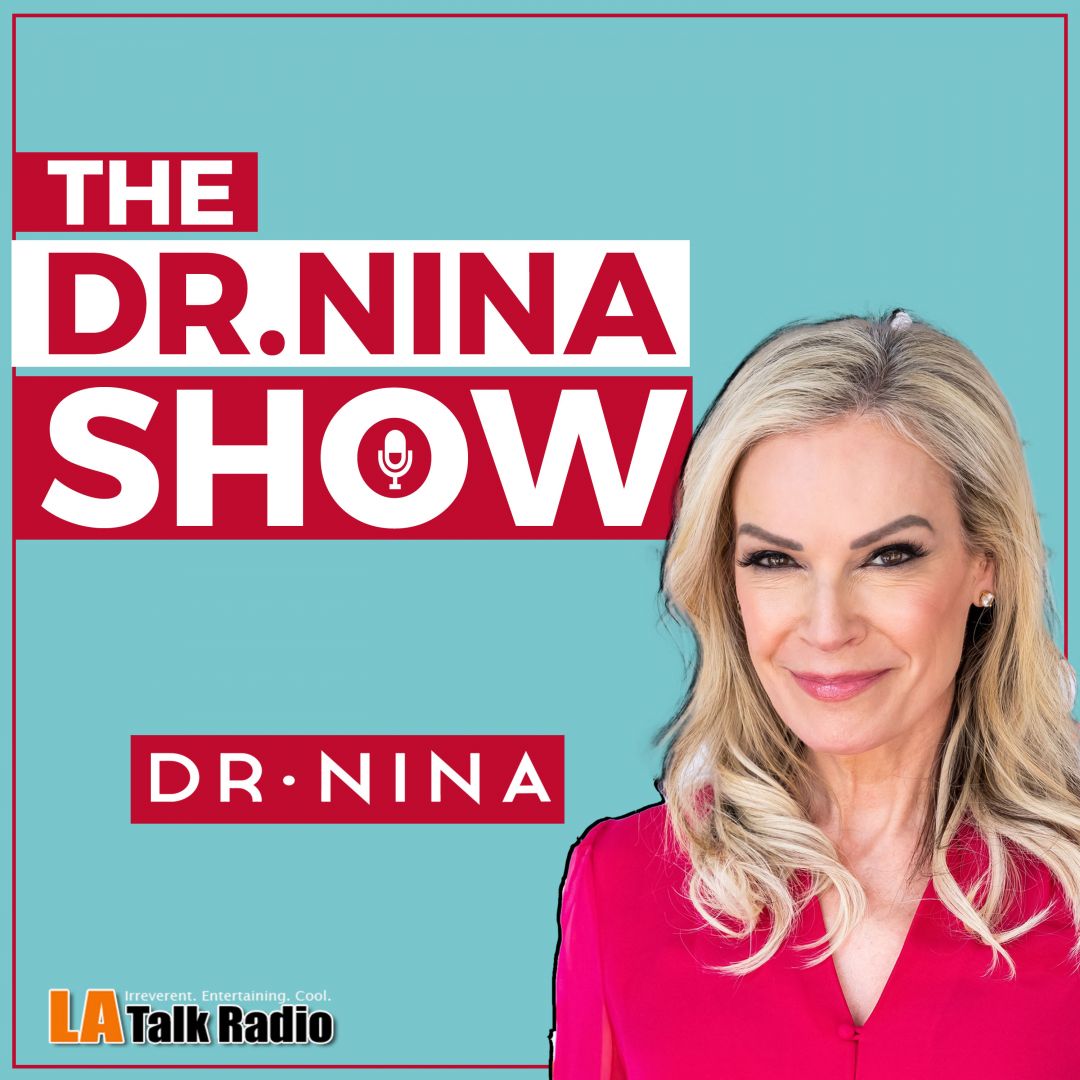
We had the good fortune of connecting with Nina Savelle-Rocklin and we’ve shared our conversation below.
Hi Nina, where are your from? We’d love to hear about how your background has played a role in who you are today?
I was raised in the Bay Area, although I spent a year in London and a summer in Paris. My parents were academics and college professors, and they were serious and intellectual. This had a lot to do with my future career because I rebelled against all of that.
Calories I ate.
Calories I burned…
The weight I was…
The weight I was going to be
I was always on some crazy, restrictive diet. Eventually, my willpower failed and I’d eat the kitchen… and sometimes I’d purge.
I was the poster child for eating disorders. I had all of them.
In college, I finally went to therapy…for anxiety. I talked about guys, goals, dreams, fears. I was open with my therapist about every part of my life except one:
I never told her what was going on with food. I was too ashamed of what I was doing. Too mortified. No one knew the truth.
But… by the time I left therapy, all my eating disorder behaviors were gone.
And not once—not a single time—had I told my therapist what was really going on with food.
How was this possible? Food was never actually the problem. Whether I was restricting it, bingeing, or purging, it was a solution to the real problem, which was my harsh relationship with myself. I was a perfectionist, judgmental and critical of myself, and nothing I did was ever good enough. My eating disorder behavior was a way of escaping my inner critic. I also thought that having a “perfect” body would bring me a perfect life, which is the illusion the diet industry sells us. When I turned that inner critic into a friend, everything changed.
And, why at age five did I think I was too big? Because I was always being told I was essentially “too much” my young mind turned that idea of being too much to handle into being physically too much, too big, and my solution was to get smaller.
Later, I became a therapist because I wanted to help other people stop the obsession and the madness about food, weight, and body image. Now, I help people change by processing what’s eating “at” them instead of focusing on what they are eating.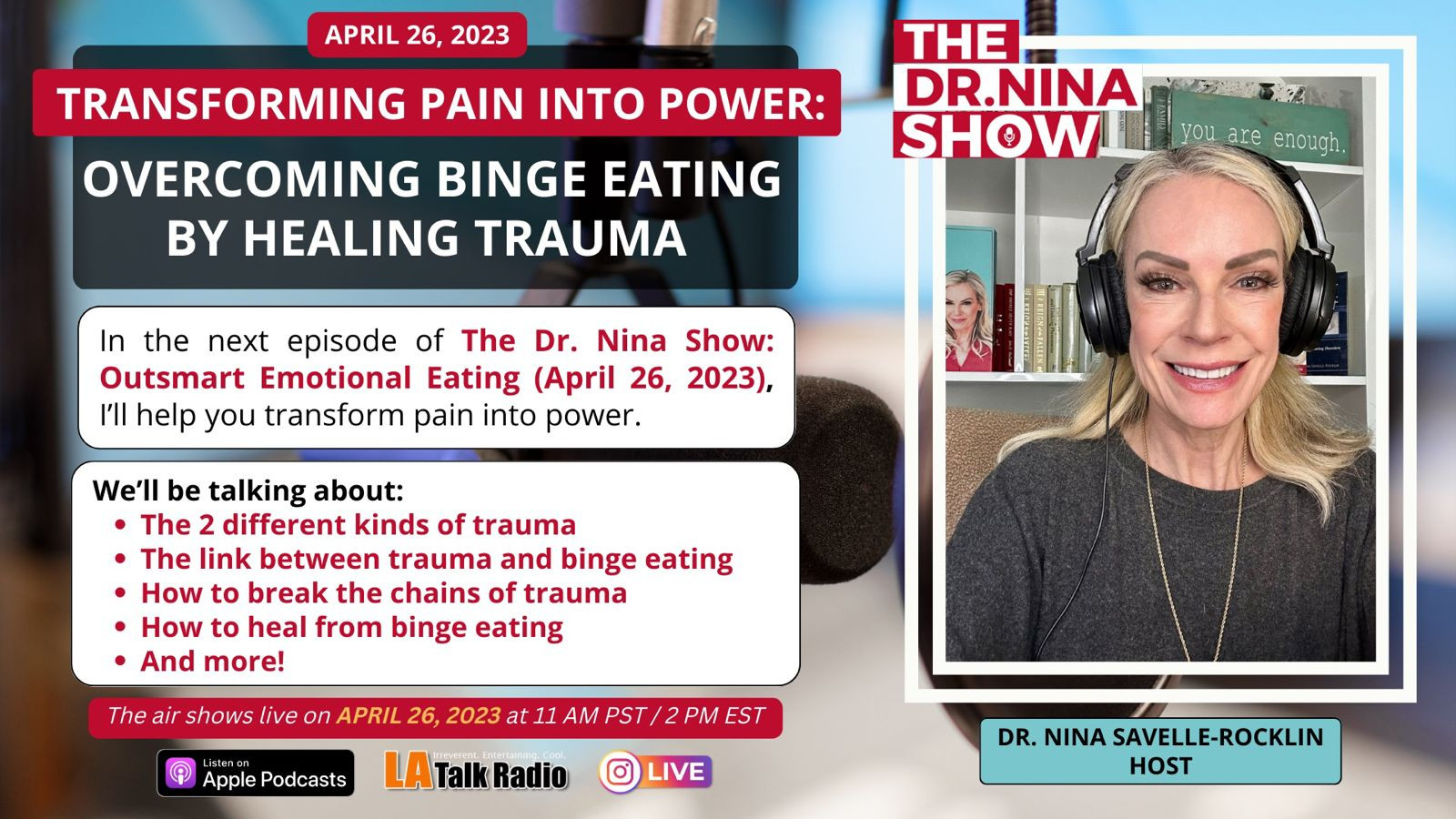
Can you give our readers an introduction to your business? Maybe you can share a bit about what you do and what sets you apart from others?
One of my early experiences as a brand-new therapist was when I started my very first group for women with binge eating disorder. The first day, I opened the door and one of the women–bright red hair, in her 50s, a little scary–she looked me up and down and says…
“You’re the therapist? Seriously?”
I tried to figure out the problem: Was she expectingsomeone older, with more experience?
Was it totally obvious that this was my first group?
And then she said, “So, what does a skinny b*tch like you know about bingeing?”
What she didn’t know was I once considered myself the poster child for eating disorders.
What I said was, “This skinny b*tch once scarfed down an entire box of gingerbread cookies in about 15 minutes flat… And I hate gingerbread, but I couldn’t stop eating those cookies.”
I told them the story of how I’d started focusing on my weight as a five year old, and my journey to liberation.
Afterward, the woman said, “I hate to admit this, but that’s what I did to you. I made assumptions because you’re thin.”
Another woman spoke up. “That happens to me every day. People assume I’m lazy, greedy, or have no willpower.”
“Me, too,” said someone else.
And just like that, the group found common ground. We started talking about what it was like to be judged by our appearance. One woman shared the humiliating experience of asking a flight attendant for a seat-belt extension. Another cringed as she recalled the judgmental looks from shoppers at the grocery store as they passed her shopping cart, which was filled with boxes of cookies and ice cream. A mother tearfully talked about the time her tween daughter shared how embarrassed she was to have an overweight mother.
That bonding moment lasted through the rest of our time together. The woman who made the “skinny b*tch” comment scared the heck out of me at first, but ultimately she taught me an important lesson about vulnerability. Instead of being “the therapist” and positioning myself as an expert, I realized I had to trust my humanity and share that part of myself with my patients.
In terms of what exactly a psychoanalyst does and how that differs from other kinds of therapy. One of my patients said it best: “Therapy is like snorkeling. You go a little bit under the surface and see some cool things. But analysis? That’s like deep sea diving to the bottom of the ocean. It’s pitch black and you’ve got to shine a light in the darkness to see what’s down there.”
Shining that light helps people discover the hidden reasons that they are turning to food. In my private clinical practice and through my online coaching programs and books, I’ve helped thousands of people all over the world heal their relationship with food for good. It’s so exciting to provide these powerful strategies to so many people.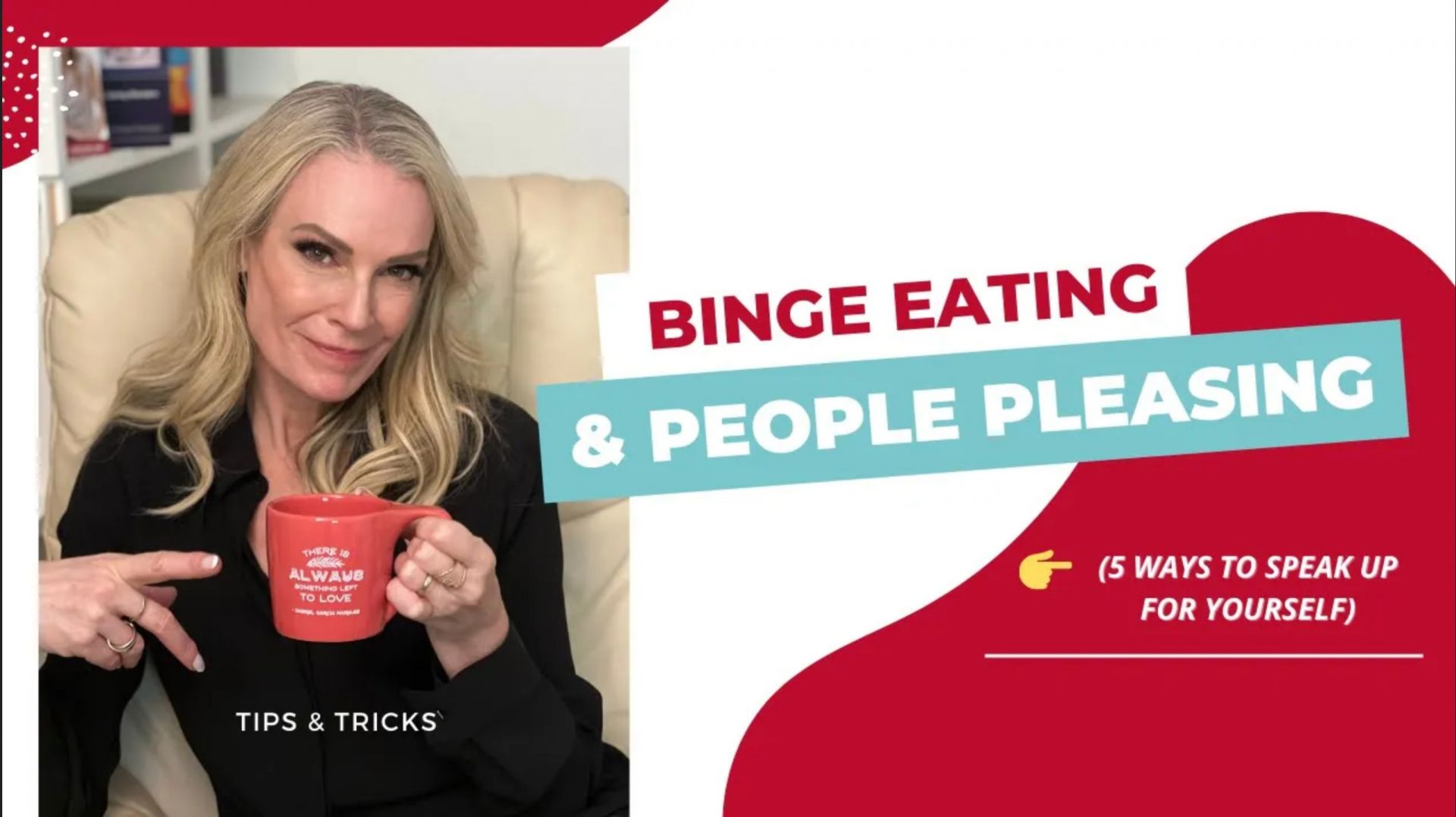
Let’s say your best friend was visiting the area and you wanted to show them the best time ever. Where would you take them? Give us a little itinerary – say it was a week long trip, where would you eat, drink, visit, hang out, etc.
I live in Calabasas which is a short drive to Topanga Canyon so we’d go on a hike in Topanga and then grab lunch at the Inn of the Seventh Ray, where I got married. It’s one of the most beautiful and unique restaurants in the city.
We’d head downtown and check out The Brewery Artwalk at the Brewery Arts Complex and check out local artists.
Afterwards, we’d go to The Last Bookstore , which is a huge bookstore in an old bank building, with all kinds of unique nooks and crannies, and a vibe of a bygone era.
We’d take a tour of The Lost Spirits Distillery because it’s one of the most fun, unique experiences to be had in Los Angeles. It’s like the Willy Wonka Ride of distillery tours.
For dinner, we’d go back to Calabasas for dinner at either Crossroads Kitchen or Porta Via restaurant, which are two of my favorites.
Some other places we’d definitely hit up are The Getty Villa because it’s such an iconic building and space, and the gardens are amazing, as well as the art. We’d look at the Degas paintings and any other exhibits they happen to have.
We’d also go to The Huntington Library, Art Museum, and Botanical Gardens because it’s beautiful, and then have high tea at the Langley Hotel.
Dinner would be at The Old Place, a super cool restaurant in the hills of Agoura, that’s rustic and yummy.
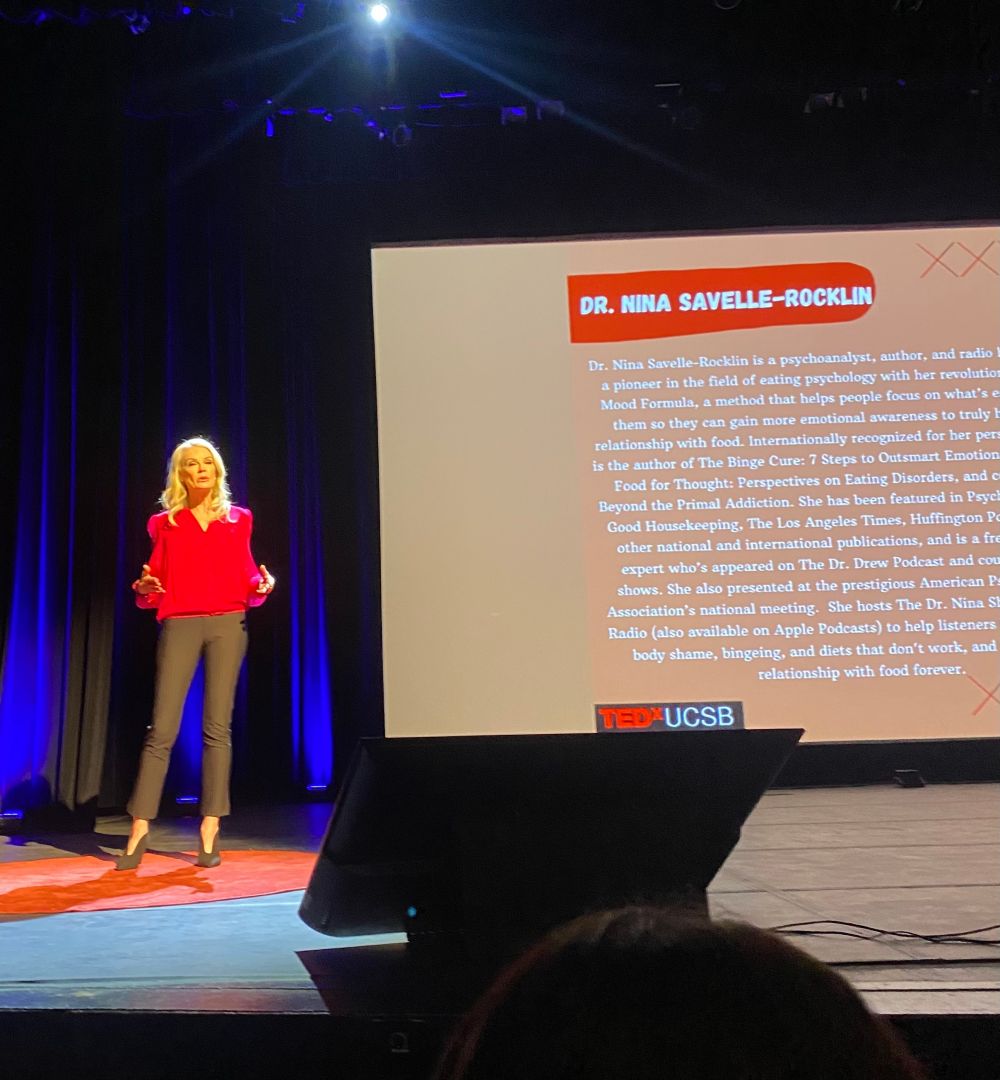
Shoutout is all about shouting out others who you feel deserve additional recognition and exposure. Who would you like to shoutout?
Well, one shoutout belongs to Sigmund Freud himself, since he’s the father of psychoanalysis, and it’s psychoanalysis that helped me get to where I am today. Although, comparing Freud to contemporary analysis is like comparing a Model T Ford to a Tesla–they’re both cars but much has evolved since those early years. Part of becoming an analyst is doing a minimum of four years of psychoanalysis on the couch four days a week. My analyst and my many mentors, including the great Dr. Salman Akhtar, have been instrumental in helping me evolve both personally and professionally. Another shout-out to one of my grad school supervisors, Dr. Alan Karbelnig, is one of the founders of Rose City Center, a Pasadena-based psychoanalytic psychotherapy center that both offers flexible fee therapy and trains therapists. I’m honored to be on the Board so that I can help give back to the psychoanalytic community and facilitate healing for others.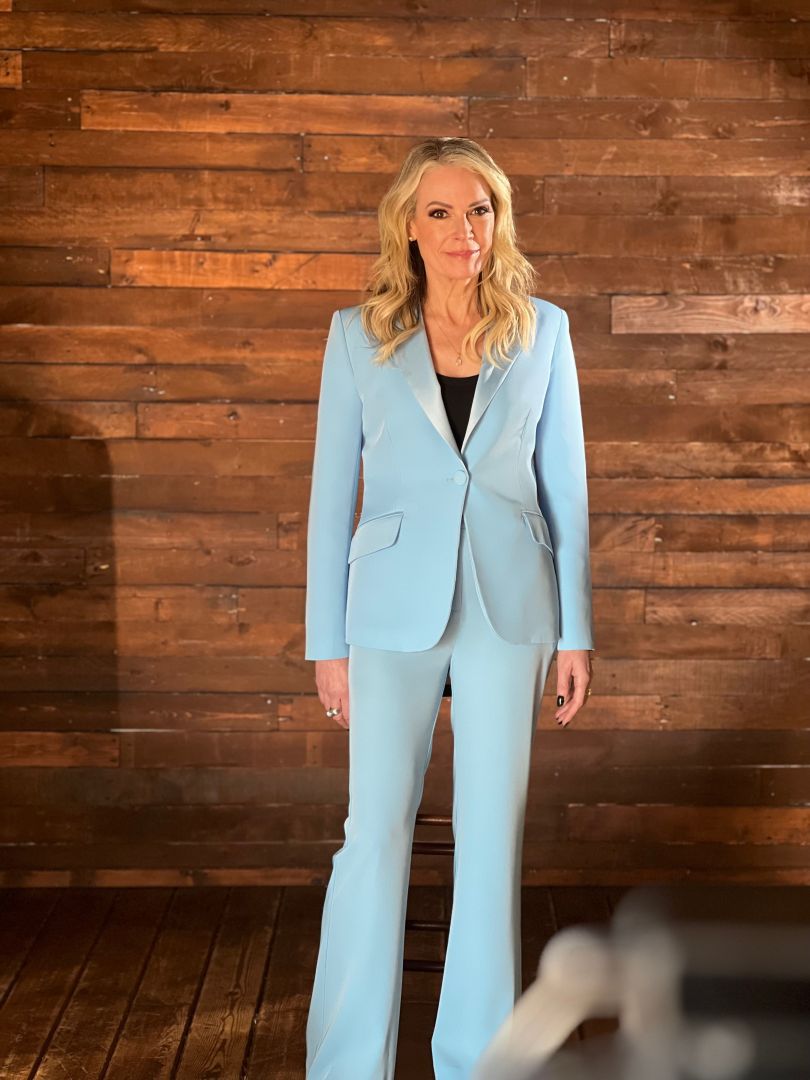
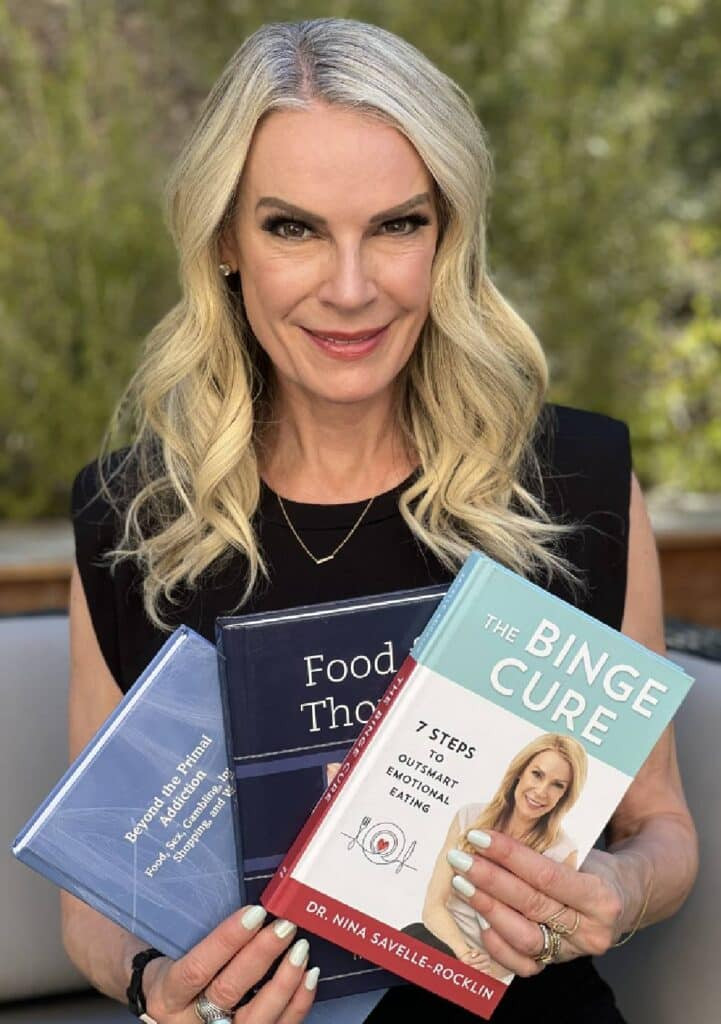
Website: https://drninainc.com/
Instagram: https://www.instagram.com/dr.nina.psychoanalyst/
Linkedin: https://www.linkedin.com/in/drnina4help/
Facebook: https://www.facebook.com/DrNina4help/
Yelp: https://www.yelp.com/biz/dr-nina-inc-calabasas-4?osq=Dr.+Nina%2C+Inc.
Youtube: https://www.youtube.com/c/Winthedietwar
Other: TikTok: https://www.tiktok.com/@the.binge.cure Podcast: The Dr. Nina Show https://podcasts.apple.com/us/podcast/the-dr-nina-show-outsmart-emotional-eating/id1251607541 LA Talk Radio https://www.latalkradio.com/content/dr-nina-show-outsmart-emotional-eating The Binge Cure book: bit.ly/BingeCure
Image Credits
Irina Logra
